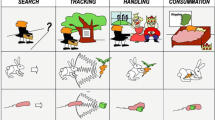Abstract
IN a recent address under this title1, Prof. Pear has examined a much-used term. Studying a wide range of examples from modern literature, he has no difficulty in showing that it is employed in very divergent senses, none of them clearly defined. The publication of his lecture is to be welcomed, for it is a delightful addition to his book, "The Maturing Mind"2. It is written in the stimulating manner we expect from him, and adds to the hints given in the book as to the rich meaning which he attaches to the term 'maturity'. Above all, it challenges us to endeavour to think more clearly.
Similar content being viewed by others
References
Pear, T. H., "The Concept of Mental Maturity" (Manchester University Press, 1944).
Pear, T. H., "The Maturing Mind", 146.
Wolters, A. W., "On Conceptual Thinking", Brit. J. Psychol, 24
Pear, T. H., "The Concept of Maturity", 15.
"Nicomachean Ethics", I.3.1.
Author information
Authors and Affiliations
Rights and permissions
About this article
Cite this article
WOLTERS, A. The Concept of Mental Maturity. Nature 156, 494–496 (1945). https://doi.org/10.1038/156494a0
Issue Date:
DOI: https://doi.org/10.1038/156494a0
- Springer Nature Limited





